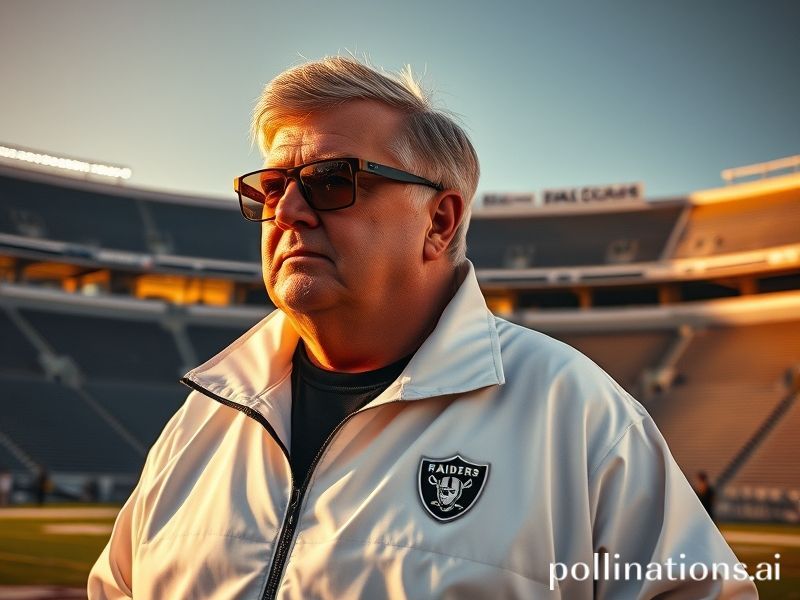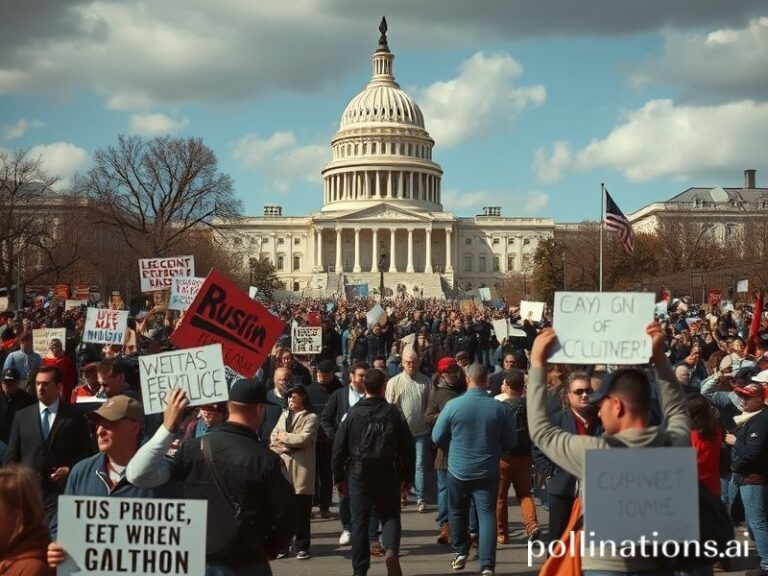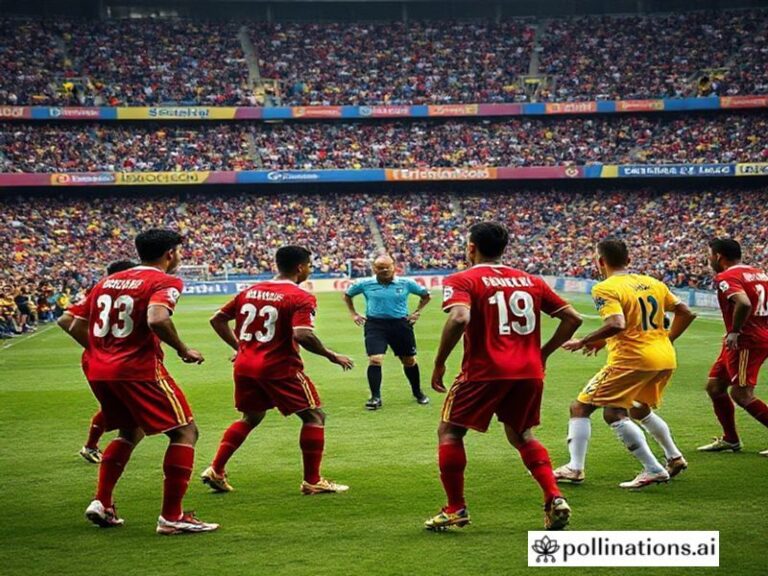Mark Davis: The Hair-Helmeted Diplomat Exporting Late-Capitalist Football to a Thirsty Planet
Mark Davis, the 69-year-old owner of the Las Vegas Raiders, is currently enjoying the sort of international fame normally reserved for tax-dodging pop stars or small Balkan strongmen. From the neon canyons of Nevada to the neon karaoke bars of Seoul, his silver-and-black hair-helmet has become the unofficial flag of late-stage capitalism—equal parts brand asset and cry for help.
How did a man whose most memorable on-camera quote is “I’ll have another shrimp cocktail” turn into a geopolitical Rorschach test? Easy: he moved an American football franchise to a desert city that subsists on bottled water and hope, then exported that same franchise’s brand of gladiatorial excess to places that still think “first down” is a banking term.
Let’s zoom out. In Mexico City, Raiders jerseys outsell the national soccer kit three-to-one on game weekends, proving nothing sells like sanctioned violence and a color scheme that matches most municipal police vehicles. Across the Atlantic, Berliners huddle in 3 a.m. bars to watch a sport whose rulebook is longer than the German constitution but whose essential message—“concuss thy neighbor”—translates perfectly. Meanwhile, in Manila, counterfeit Raiders caps fund entire fishing villages, providing a salty lesson in global supply chains: one knock-off visor equals two days of tuna.
Davis himself pilots between continents like a low-budget Bond villain who misplaced the volcano lair. One week he’s in Canton, Ohio, lobbying for a former punter’s bronze bust; the next he’s in London, nodding solemnly as British officials explain that no, Wembley cannot be converted into a blackjack pit. The British press calls him “the NFL’s quiet American,” apparently mistaking chronic shyness for anhedonia.
Critics insist the Raiders’ globe-trotting is merely soft imperialism—McDonald’s with shoulder pads. Supporters counter that exporting the Raiders is the least lethal thing America has shipped abroad since jazz. Both camps miss the point: Davis has inadvertently created the world’s first post-national sports franchise. The Raiders belong nowhere and therefore, in the age of digital nomads and remote work, belong everywhere. They are the Airbnb of football: show up, trash the place, leave a five-star review.
Financially, the experiment is paying off in currencies as volatile as Bitcoin and as stable as the Argentine peso. The Raiders’ official crypto token—“$RN4R”—briefly spiked 400% after a viral TikTok from a Kazakhstani teenager who thought the logo was a pirate radio station. In Lagos, street vendors sell unofficial Raiders-branded generators, promising to keep the lights on long enough to watch the fourth quarter before the national grid remembers it’s off duty. The club’s online store now ships to 174 countries, including several the U.S. State Department still calls “aspirational.”
All of which raises the eternal question: does any of this actually matter, or is it just another distraction while the planet quietly files for Chapter 11? When Davis dons his trademark white windbreaker and fanny pack—an outfit that screams “retired substitute teacher on shore leave”—he embodies the late-capitalist paradox: the less essential the product, the more aggressively we export it. In that sense, the Raiders are less a football team than a multinational coping mechanism.
Still, you have to admire the purity of the hustle. While other billionaires chase rockets or longevity diets, Davis has built a borderless tribe united by face paint, fiscal irresponsibility, and a shared willingness to mortgage the future for one more playoff push. Somewhere in the afterlife, Marcus Aurelius is updating his Meditations: “The universe is change; life is opinion; the Las Vegas Raiders are eternal, apparently.”
So here’s to Mark Davis—accidental ambassador of the end times, follicle martyr, and the only man alive who can make a franchise rooted in Oakland mystique feel equally at home on the Strip, the Thames, or a floating barge in international waters. The world may be burning, but at least the fire is silver and black.







